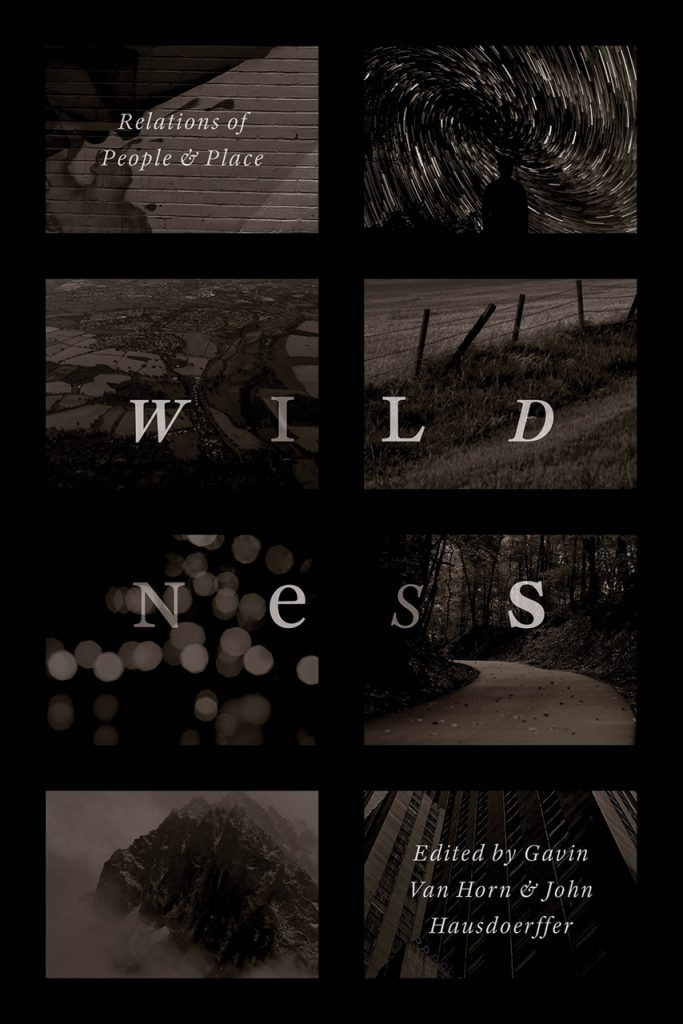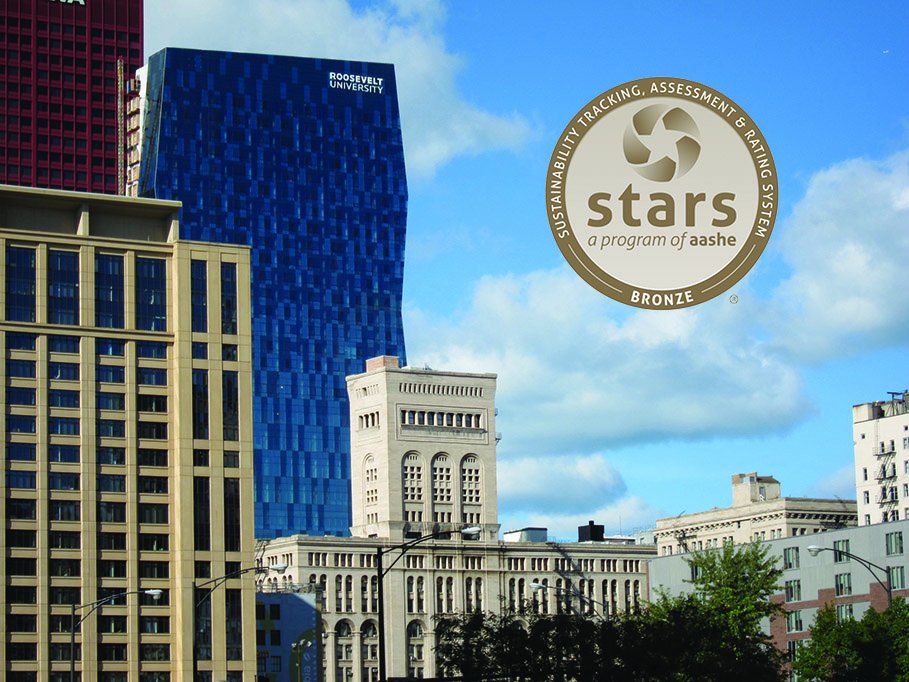I was honored to be interviewed for this Chicago Tonight special report on the current status of Bubbly Creek, aka the South Fork of the South Branch of the Chicago River. This was an effort by students in the DePaul University Center for Journalism Integrity and Excellence. Legendary local TV journalist Carol Marin came to my RU office in downtown Chicago, where we chatted about the Creek’s history and present condition while the students filmed us. Take a look, and let me know if anyone can saying “capping the sludge” better than Carol!
Category: News
“Cultivating the Wild” Essay Reprinted in The Leopold Outlook
Warm tidings on a cold December morning: “Cultivating the Wild on Chicago’s South Side,” an essay I co-wrote about Eden Place Nature Center with Michael Howard for the book Wildness: Relations of People and Place (U. Chicago P., 2017), has been reprinted in the Fall 2017 issue of The Leopold Outlook magazine.
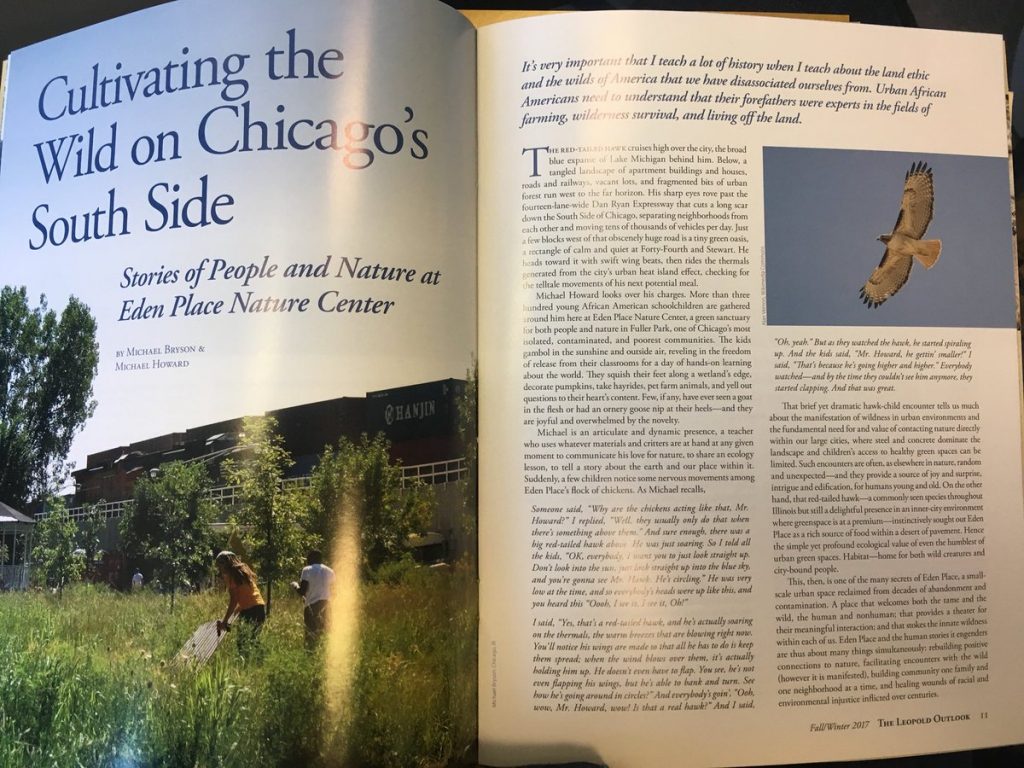
Check out the magazine’s back issues here and learn more about the Aldo Leopold Foundation’s work. And many thanks to my co-author Michael Howard as well as the co-editors of Wildness, Gavin Van Horn and John Hausdoerffer, for encouraging us to take on this project.
Wasted Water and Environmental Injustice in Chicago
This fall semester, students in my SUST 220 Water class have been studying our American obsession with bottled water, which comes at the expense of (among other things) proper investment in and maintenance of public drinking water infrastructure. While taxpayer-funded repairs to underground water infrastructure are expensive and politically unpopular, the bottled water industry continues to thrive and grow: the International Bottled Water Association reported industry wholesale revenues of more than $14.2 billion in 2015 alone.
The Chicago Region is blessed with one of the best drinking water sources in the world: Lake Michigan, which supplies water to 163 Chicago-area communities.
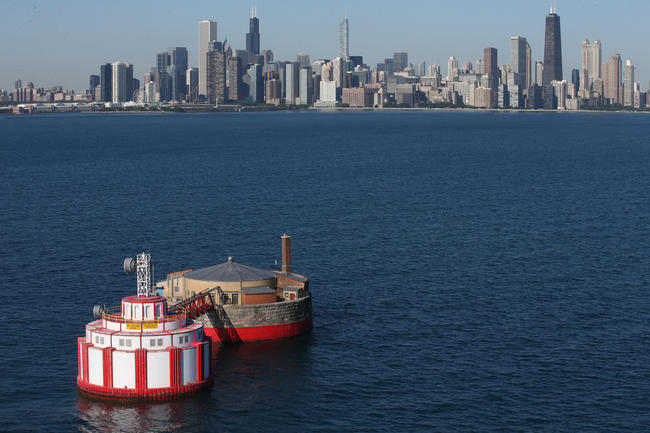
But as this important investigative report published online in the Chicago Tribune reveals, billions of gallons of treated drinking water are wasted each year, while communities pay millions of $ for water that never reaches their taps. Meanwhile, wide disparities in drinking water rates, combined with differential amounts of waste via leaks, disproportionately saddle poor and minority communities with extra costs they cannot afford.
Thus does neglected urban infrastructure meet environmental injustice in 21st century America, here along the southern rim of Lake Michigan.
Sources:
Patrick M. O’Connell, Cecilia Reyes, Ted Gregory and Angela Caputo. (25 Oct 2017). Billions Lost, Millions Wasted: Why Chicago-area Residents Pay Millions for Water that Never Reachers Their Taps. Chicago Tribune. Retrieved from
http://graphics.chicagotribune.com/news/lake-michigan-drinking-water-rates/loss.html.
——. (25 Oct 2017). Same Lake, Unequal Rates: Why Our Water Rates Are Surging — and Why Black and Poor Suburbs Pay More. Chicago Tribune. Retrieved from http://graphics.chicagotribune.com/news/lake-michigan-drinking-water-rates/index.html.
Wildness: Relations of People and Place
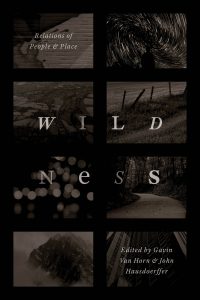 This March saw the publication of the new book Wildness: Relations of People and Place, edited by Gavin Van Horn and John Hausdoerffer (Univ. of Chicago Press, 2017), an environmental humanities project sponsored by the Center for Humans and Nature. Part 3 of the book, entitled Urban Wild, includes an essay I co-wrote with Mr. Michael Howard, a Chicago community leader, conservationist, and environmental educator: “Cultivating the Wild on Chicago’s South Side: Stories of People and Nature at Eden Place Nature Center.”
This March saw the publication of the new book Wildness: Relations of People and Place, edited by Gavin Van Horn and John Hausdoerffer (Univ. of Chicago Press, 2017), an environmental humanities project sponsored by the Center for Humans and Nature. Part 3 of the book, entitled Urban Wild, includes an essay I co-wrote with Mr. Michael Howard, a Chicago community leader, conservationist, and environmental educator: “Cultivating the Wild on Chicago’s South Side: Stories of People and Nature at Eden Place Nature Center.”
I’m fortunate to have been part of this wonderful project, which began with a writer’s retreat in September of 2014 in Crested Butte, CO, featuring writing workshops by the award-winning scientist and nature writer, Robert Michael Pyle (whose own essay follows a poem by none other than the legendary Gary Snyder). My interviews and writing sessions with Mr. Howard at Eden Place in 2015, and the three semesters I’ve worked there with my students each fall since 2014, have made getting a sense of this special place in the world an immensely gratifying experience. Thanks to Gavin and John for shepherding this project through its publication!
From the book’s promo page on the Univ. of Chicago Press website:
Whether referring to a place, a nonhuman animal or plant, or a state of mind, wild indicates autonomy and agency, a will to be, a unique expression of life. Yet two contrasting ideas about wild nature permeate contemporary discussions: either that nature is most wild in the absence of a defiling human presence, or that nature is completely humanized and nothing is truly wild.
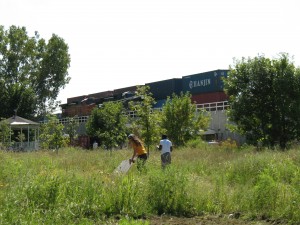
This book charts a different path. Exploring how people can become attuned to the wild community of life and also contribute to the well-being of the wild places in which we live, work, and play, Wildness brings together esteemed authors from a variety of landscapes, cultures, and backgrounds to share their stories about the interdependence of everyday human lifeways and wildness. As they show, far from being an all or nothing proposition, wildness exists in variations and degrees that range from cultivated soils to multigenerational forests to sunflowers pushing through cracks in a city alley. Spanning diverse geographies, these essays celebrate the continuum of wildness, revealing the many ways in which human communities can nurture, adapt to, and thrive alongside their wild nonhuman kin.
From the contoured lands of Wisconsin’s Driftless region to remote Alaska, from the amazing adaptations of animals and plants living in the concrete jungle to indigenous lands and harvest ceremonies, from backyards to reclaimed urban industrial sites, from microcosms to bioregions and atmospheres, manifestations of wildness are everywhere. With this book, we gain insight into what wildness is and could be, as well as how it might be recovered in our lives—and with it, how we might unearth a more profound, wilder understanding of what it means to be human.
Visit the Center for Humans and Nature’s Wildness website for upcoming events and a series of related short films, including one of Michael Howard and Michael Bryson talking about Eden Place.
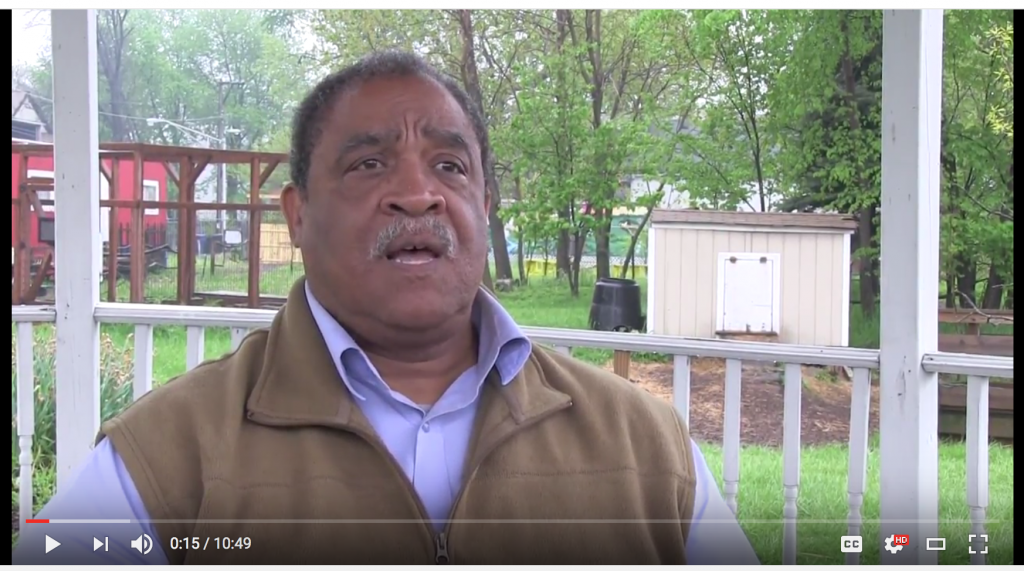 Click on the image above to go to the video interview of Michael Howard (pictured) and Michael Bryson at Eden Place Nature Center.
Click on the image above to go to the video interview of Michael Howard (pictured) and Michael Bryson at Eden Place Nature Center.
Five Faculty Named First-Year Fellows at Roosevelt
I’m honored to be part of the First-Year Faculty Fellows team at Roosevelt University, where I just finished my 20th year of teaching. Looking forward to working with these and other great colleagues on our ACP curricular efforts!
Linda Jones, Dean of Undergraduate Studies at RU, announced the first class of First-Year Faculty Fellows to the university community in today’s broadcast email:
- Michael Bryson, professor of Sustainability Studies, who will teach his Our Sustainable Future section of ACP 101 that was first offered last fall.
- Anne-Marie Cusac, associate professor of Journalism, who taught ACP 101 First-Year Seminar for the first time in its initial offering in 2011.
- Sandra Frink, associate professor of History, who will teach a new First-Year Seminar section entitled Chicago: Past & Present.
- Elizabeth Meadows, associate professor of Elementary Education/Reading, who will teach a new First-Year Seminar section entitled Becoming a Teacher.
- Kelly Wentz-Hunter, associate professor of Biology, who will teach her 21st Century Health Care section of ACP 101 that was first offered in 2014.
Each of the five fellows has committed to teaching at least one of the 100-level Academic Communities of Practice classes (First-Year Seminar and Primary Texts) in each fall and spring term of 2016-17 and 2017-18. Even more important to the futures of the two courses, they will act as core faculty for ACP classes, evaluating, reviewing and advising on their content and revision. They also will be central to pedagogy workshops, orientation and skill-building sessions for faculty teaching freshmen.
Linda Jones, Dean of Undergraduate Studies
Address replies to: ljones@roosevelt.edu
Bernie Sanders Rally in Auditorium Theatre Tonight, March 14
Democratic presidential candidate Bernie Sanders will be holding a rally this evening, March 14, in the Auditorium Theatre of Roosevelt University, 50 E. Congress Parkway. Doors open at 8:30 p.m. and Senator Sanders is expected to begin speaking at 10:30.
According to the Sanders’ website, the event is free and open to the public. Tickets are not required, but RSVPs are strongly encouraged. Admission is first come, first served. For security reasons, people should not bring bags and limit what they bring to small, personal items like keys and cell phones. Weapons, sharp objects, chairs, and signs or banners on sticks will not be allowed through security.
The Chicago Police Department will determine traffic closures as situations warrant.
Tom Karow, Assistant Vice President of Public Relations, Roosevelt University
Address replies to: tkarow@roosevelt.edu
#RUinFlint this Weekend
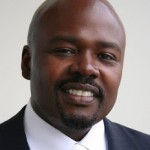 Roosevelt University journalism professor John W. Fountain and nine students in his JOUR 392 Convergence Newsroom class will be in Flint, Michigan, this weekend to report on the Flint water crisis. They’ll also have the opportunity to cover the Democratic candidates’ debate, broadcasting live from Flint on Sunday evening.
Roosevelt University journalism professor John W. Fountain and nine students in his JOUR 392 Convergence Newsroom class will be in Flint, Michigan, this weekend to report on the Flint water crisis. They’ll also have the opportunity to cover the Democratic candidates’ debate, broadcasting live from Flint on Sunday evening.
To follow along with the students’ experiences, just watch Twitter this weekend for the hashtag #RUinFlint.
For questions or more information, contact Dr. Marian Azzaro, Chair, Department of Communication (mazzaro@roosevelt.edu).
Politics, Climate Change, and the Supreme Court
Just as I began a four-week unit on climate change in my SUST 340 Policy, Law, & Ethics course here at Roosevelt (see pdf of syllabus) and in a space of just five days this past week, seismic quakes within the landscape of the US Supreme Court have shaken the nation’s fragile commitment to combating climate change by reducing carbon emissions and underscored the increasingly high political stakes of a tumultuous presidential campaign year.
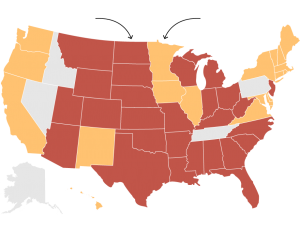
As reported this past Wednesday, 10 Feb 2016, by the NY Times, “The Supreme Court’s surprise decision Tuesday to halt the carrying out of President Obama’s climate change regulation could weaken or even imperil the international global warming accord reached with great ceremony in Paris less than two months ago, climate diplomats say” (par. 1).
Journalist Coral Davenport goes on to note that “The court did not block the rule permanently, but halted it from being carried out in the states until legal challenges against it have been decided, a process that could take a year or more. Legal experts said the justices’ decision to stop work on the rule before any court had decided against it was unprecedented and signaled that the regulation might ultimately be overturned. That could set back the United States’ climate efforts for years, although there would still be a chance for Washington to meet its commitments by 2025″ (par. 5).
Then, just a few days after this split 5-4 vote on this unprecedented stay, the Supreme Court was thrown into unexpected uncertainty by the sudden death of its longtime conservative firebrand, Justice Antonin Scalia, who passed away on Saturday at age 79, thus immediately igniting a political firestorm over the process for filling the Court’s vacancy within the context of the impending presidential election.
 Tuesday we begin our three-week discussion of Naomi Klein’s 2014 book, This Changes Everything: Capitalism vs. the Climate.
Tuesday we begin our three-week discussion of Naomi Klein’s 2014 book, This Changes Everything: Capitalism vs. the Climate.
With the already-tempered enthusiasm of the recent Paris climate accord now battered by these latest upheavals on the US political and legal landscape, it’s hard to imagine a more timely and important conversation to be having right now in our universities and communities.
STARS on the Chicago Skyline
Pauline Dubkin Yearwood, 1942-2015
I was very saddened to learn a few weeks ago of the passing of Pauline Dubkin Yearwood, whom I befriended several years ago while doing research on the life and work of her father and Chicago nature writer, Leonard Dubkin. Pauline graciously allowed me to interview her twice in 2007 and lent me a trove of her father’s papers and letters to assist my research, which she encouraged and supported with enthusiasm and generosity. She will be dearly missed by her family, colleagues, and many friends.
This is a reprint of the obituary, “Pauline Dubkin Yearwood, Journalist with Chicago Jewish News, Dies at 73” (Graydon Megan, Chicago Tribune, 6 Jan 2016).
 Pauline Dubkin Yearwood, the longtime managing editor of the Skokie-based Chicago Jewish News, was a prolific and award-winning journalist who covered topics from arts to health care to personal profiles.
Pauline Dubkin Yearwood, the longtime managing editor of the Skokie-based Chicago Jewish News, was a prolific and award-winning journalist who covered topics from arts to health care to personal profiles.
“She was an excellent reporter and beyond that a very graceful writer,” said Joseph Aaron, editor and publisher of Chicago Jewish News. “She could handle any subject. For us she wrote a 2,500-word cover story almost every week — something like 900 cover stories.”
Aaron said Yearwood always took an unbiased approach to her work. “Everybody felt she’d given them a fair shake, covered the story fairly,” he said.
Yearwood 73, died of complications of pancreatic cancer on Dec. 22, 2015, according to her daughter Lagusta. She moved to her daughter’s home in New Paltz, N.Y., about a year ago after being diagnosed with the disease.
 After high school at Francis W. Parker School in Chicago, she got a bachelor’s degree from Bryn Mawr College in Pennsylvania before returning to the Chicago area to get a master’s degree in journalism from the Medill School of Journalism of Northwestern University.
After high school at Francis W. Parker School in Chicago, she got a bachelor’s degree from Bryn Mawr College in Pennsylvania before returning to the Chicago area to get a master’s degree in journalism from the Medill School of Journalism of Northwestern University.
By the mid-1970s, she was married and living in Phoenix. She later divorced but remained in Phoenix, where she raised her children and began writing for newspapers including the Phoenix New Times and the Jewish News of Greater Phoenix.
“She reviewed plays and was a theater critic,” her daughter said.
Yearwood moved back to the Chicago area in the late 1990s and was soon writing for the Chicago Jewish News, work she continued until early December.
“Her writing and reporting were both very impressive,” Aaron said. “I would give her an assignment, and she would know exactly who to call, how to pursue it and how to do the research.”
Yearwood won a Chicago Headline Club Peter Lisagor Award for Exemplary Journalism in the category of Best in-depth Reporting in a Community Newspaper for her October 2008 story, “Obama and the Jews,” examining the relationship between the then soon-to-be president and the Jewish community.
She also won a 2014 American Jewish Press Association award for a 2013 profile of Chicago Teachers Union President Karen Lewis.
“I found her to be kind, probing and thought-provoking,” Lewis said in an email about the profile, which focused on Lewis’ conversion to the Jewish faith. “It is the essence of Jewish life she was interested in.”
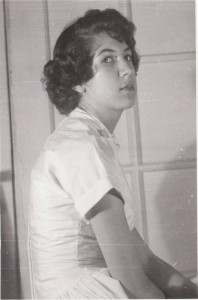 “She was devoted to her children and her writing,” said former Tribune writer Harriet Choice, who met Yearwood when both were in high school.
“She was devoted to her children and her writing,” said former Tribune writer Harriet Choice, who met Yearwood when both were in high school.
Yearwood “also had a passion for animals, very into animal rights,” Choice said. That interest grew out of childhood adventures with her father, who took her to what he called his “secret places” to see natural places around the city.
“She did a lot of work for animal causes” and was a vegan for 22 years, her daughter said.
Judy Voigt, another longtime friend, called Yearwood a brilliant and prolific writer whose work didn’t stop at journalism. “She was an incredible writer — she wrote a couple of plays,” Voigt said.
Yearwood’s play, “The Natural History of Mozart Street,” was based on her father’s efforts to become an expert on nature in the city and was presented in 2010 as a staged reading by Chicago’s Genesis Theatrical Productions.
Aaron said he regularly heard compliments from people covered in Yearwood’s stories. “She really was able to grasp a topic and convey it in a both accurate and colorful way.”
She is also survived by her son, Leonard.
A tribute will be from 1 to 3 p.m. Jan. 24, in the Spertus Institute for Jewish Learning and Leadership, 610 S. Michigan Ave., Chicago.
Graydon Megan is a freelance reporter. A version of this article appeared in print on January 07, 2016, in the Business section of the Chicago Tribune with the headline “Reporter, editor with Chicago Jewish News.”
